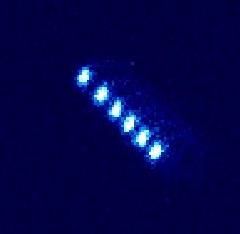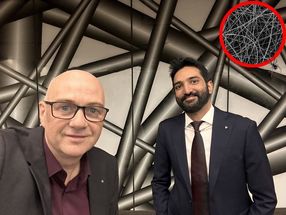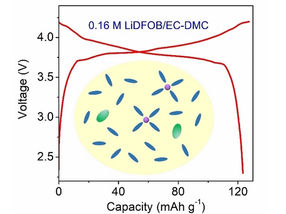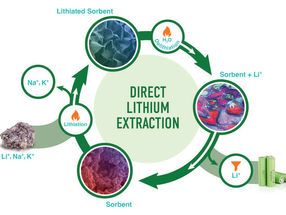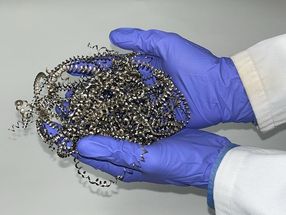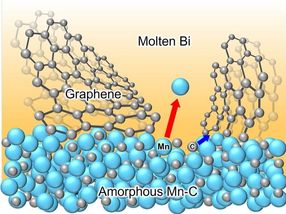Major discovery in controlling quantum states of single atoms
Researchers at the Center for quantum Nanoscience within the Institute for Basic Science (IBS) have made a major breakthrough in controlling the quantum properties of single atoms. In an international collaboration with IBM Research in San Jose, USA, using advanced and novel techniques, QNS scientists identified which mechanisms destroy the quantum properties of individual atoms by manipulating the magnetic state of a single iron atom on a thin insulator. Using a Scanning Tunneling Microscope, which utilizes an atomically sharp metal tip, they were able to precisely image individual iron atoms and measure and control the time that the iron atom can maintain its quantum behavior.
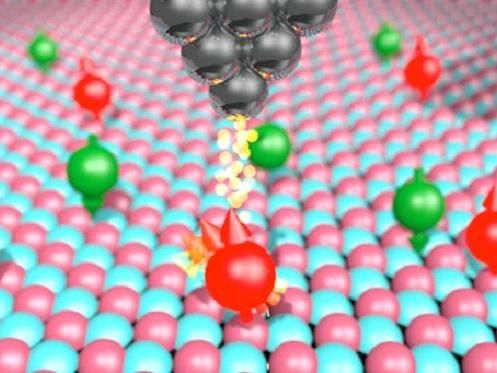
The metallic tip of a scanning tunneling microscope is used to drive the magnetic quantum state of an iron atom into a different direction.
Institute for Basic Science (IBS)
Their findings show that the loss in quantum state superposition is mainly caused by nearby electrons that the researchers injected with extreme control into the iron atom.
"We found that almost every electron destroys the quantum state," explains Dr. Philip Willke, first author of the study. "In addition, we found that nearby fluctuating magnets had a similar negative impact. While our experiments decreased the state of superposition on purpose, it also gave us valuable clues on how to improve atoms' quantum states."
Andreas Heinrich, Director of the IBS Center for Quantum Nanoscience added: "Understanding these destructive interactions allows us to avoid them in future experiments and improve the performance of magnetic quantum sensors that, in this case, only consist of a single atom."
Quantum nanoscience relies on harnessing the properties of atoms & molecules for potential advances in quantum sensing; potentially improving devices using such technology, including hospital MRI machines.
Quantum computers could also potentially benefit from this research. While still in early development, quantum computation promises to vastly outperform classical computers in tasks such as database management, search and optimization. At its core lies the fact that a quantum system can be in two quantum states at the same time; an effect called the superposition of quantum states. However, when such a quantum system interacts in particular environments - either through desired or undesired contact - this superposition of states is easily destroyed. This principle makes it crucial for quantum nanoscientists to understand and control these processes.
Original publication
Other news from the department science
Most read news
More news from our other portals
See the theme worlds for related content
Topic world Sensor technology
Sensor technology has revolutionized the chemical industry by providing accurate, timely and reliable data across a wide range of processes. From monitoring critical parameters in production lines to early detection of potential malfunctions or hazards, sensors are the silent sentinels that ensure quality, efficiency and safety.

Topic world Sensor technology
Sensor technology has revolutionized the chemical industry by providing accurate, timely and reliable data across a wide range of processes. From monitoring critical parameters in production lines to early detection of potential malfunctions or hazards, sensors are the silent sentinels that ensure quality, efficiency and safety.
